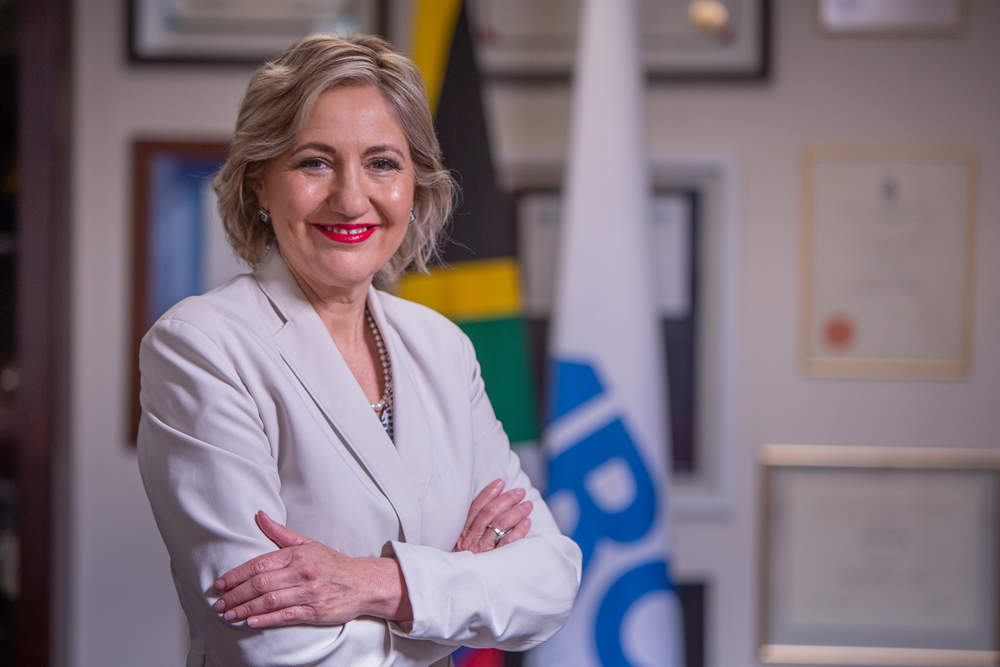The Global Antibiotic Research and Development Partnership (GARDP) has announced the appointment of distinguished scientist and leader in the medical research community, Professor Glenda Gray, as the new chair of its board of directors.
Gray, well-known as a paediatrician and strong advocate for child health, is currently the vice-chair of GARDP’s board. She has recently completed two successful five-year terms as the President and CEO of the South African Medical Research Council (SAMRC).
During her tenure at the SAMRC, she achieved significant milestones, including transformative grant funding initiatives that have greatly improved support for young scientists, black African scientists, and women. She has also established vital partnerships and collaborations to advance scientific research.
In her new full-time science role at the SAMRC, Gray is using her extensive experience in conducting research on HIV vaccines to develop new vaccines that address pressing health challenges in African countries.
She serves on the CEPI scientific advisory committee, has been a member of the WHO-Strategic Advisory Group for TB, and has served on the WHO/UNAids Vaccine Advisory Board, as well as the Data and Safety Monitoring Board for two vaccine studies in Africa.
She chaired the standing committee on health for the Academy of Science and was appointed by South Africa’s Minister of Science, Innovation and Higher Education to the National Research Foundation and the University of Cape Town’s Council, after serving as a member of the Wits University Council.
As a member of the National Academy of Medicine, of the National Academies in the US, Gray served on the Board for Global Health.
“We are delighted to announce Prof Gray as our new board chair. During her time as vice-chair of our board we greatly valued her sound advice and guidance. Prof Gray brings a wealth of experience in public health and innovation and has led efforts in collaborative research to address pressing health challenges in South Africa and globally,” said Dr Manica Balasegaram, executive director of GARDP.
“I am looking forward to this new chapter as chair of the GARDP board and its global commitment to address antimicrobial resistance,” said Gray.
“GARDP has made great strides in growing its portfolio and delivering new treatments to address drug-resistant infections. It has also strengthened its work on access to antibiotics. In the years ahead, we are committed to demonstrating how GARDP’s unique antibiotic R&D partnership model can help to address the global Antimicrobial Resistance public health failure by enabling the right antibiotics to be developed and made available to people who need them.”
GARDP is also pleased to announce the founder of the Drugs for Neglected Diseases initiative (DNDi), Dr Bernard Pécoul, as vice-chair of GARDP’s board. Dr Pécoul led DNDi from 2003 until 2022. Under his guidance, DNDi – a not-for-profit research and development organisation – delivered 12 new treatments for six deadly diseases. Pécoul is a lifelong advocate for better access to medicines.
GARDP was launched in 2016 by DNDi and the World Health Organisation (WHO).
Prior to DNDi, Pécoul was director of the Médecins Sans Frontières (MSF) Campaign for Access to Essential Medicines from 1998 to 2003, a position he took on after that of Executive Director of MSF France.
“It has been heartening to see GARDP’s progress over the past few years. I am excited to be part of this next term as GARDP takes vital steps in developing and delivering much-needed treatments for drug-resistant infections,” he said.
Gray takes over as chair from Dr Ramanan Laxminarayan, the founder and director of One Health Trust in Washington, DC, a senior research scholar at Princeton University, and director of the WHO Collaborating Centre on Antimicrobial Resistance in New Delhi.
During Laxminarayan’s term as board chair, GARDP has made significant progress towards establishing the global ecosystem needed to address AMR.
Among its achievements, GARDP has conducted one of the largest ever observational studies on the care of babies with sepsis, and successfully completed a global phase 3 trial of a new first-in-class antibiotic, zoliflodacin, to treat uncomplicated gonorrhoea.
It has also signed a license and technology transfer agreement with Shionogi and the Clinton Health Access Initiative (CHAI) that aims to transform the landscape of access to antibiotics for countries around the world.
Issued by GARDP
Original Article available on the Global Antibiotic Research & Development Partnership Website

